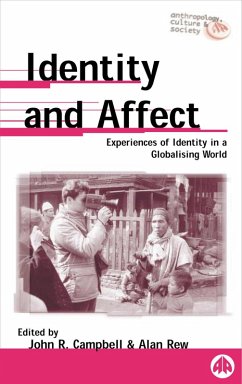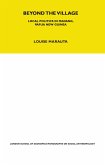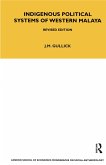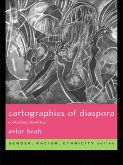When forces of globalisation and local culture converge, distinctive social habitats are created. Drawing on case studies of South Asian, East African, Melanesian and European societies, Identity and Affect provides a contextual analysis of the formation and expression of local identities and of the affective self-constitution of social agents.
The contributors examine in particular the growing fragmentation of social relations in these areas and the impact this is having on individuals and communities who, forced into an increasingly outward orientation, are initiating processes of cultural redefinition and social realignment.
The different effects of colonialism on identity formation are examined in studies of communalism in Sri Lanka, untouchables in India, cargo cults in New Guinea and the substitution of food exchange for cannibalism in Kaluana. Focusing on Italians in London and south Asians in East Africa, the formation and experience of belonging to cultural diaspora is explored from the perspective of the individual and the social collectivity. The authors conclude with an exploration of some of the defining experiences of modernity, specifically how individuals in industrial capitalist societies have come to see their identity as dependent on modern forms of industrial, public sector work.
The contributors examine in particular the growing fragmentation of social relations in these areas and the impact this is having on individuals and communities who, forced into an increasingly outward orientation, are initiating processes of cultural redefinition and social realignment.
The different effects of colonialism on identity formation are examined in studies of communalism in Sri Lanka, untouchables in India, cargo cults in New Guinea and the substitution of food exchange for cannibalism in Kaluana. Focusing on Italians in London and south Asians in East Africa, the formation and experience of belonging to cultural diaspora is explored from the perspective of the individual and the social collectivity. The authors conclude with an exploration of some of the defining experiences of modernity, specifically how individuals in industrial capitalist societies have come to see their identity as dependent on modern forms of industrial, public sector work.
Dieser Download kann aus rechtlichen Gründen nur mit Rechnungsadresse in A, D ausgeliefert werden.









